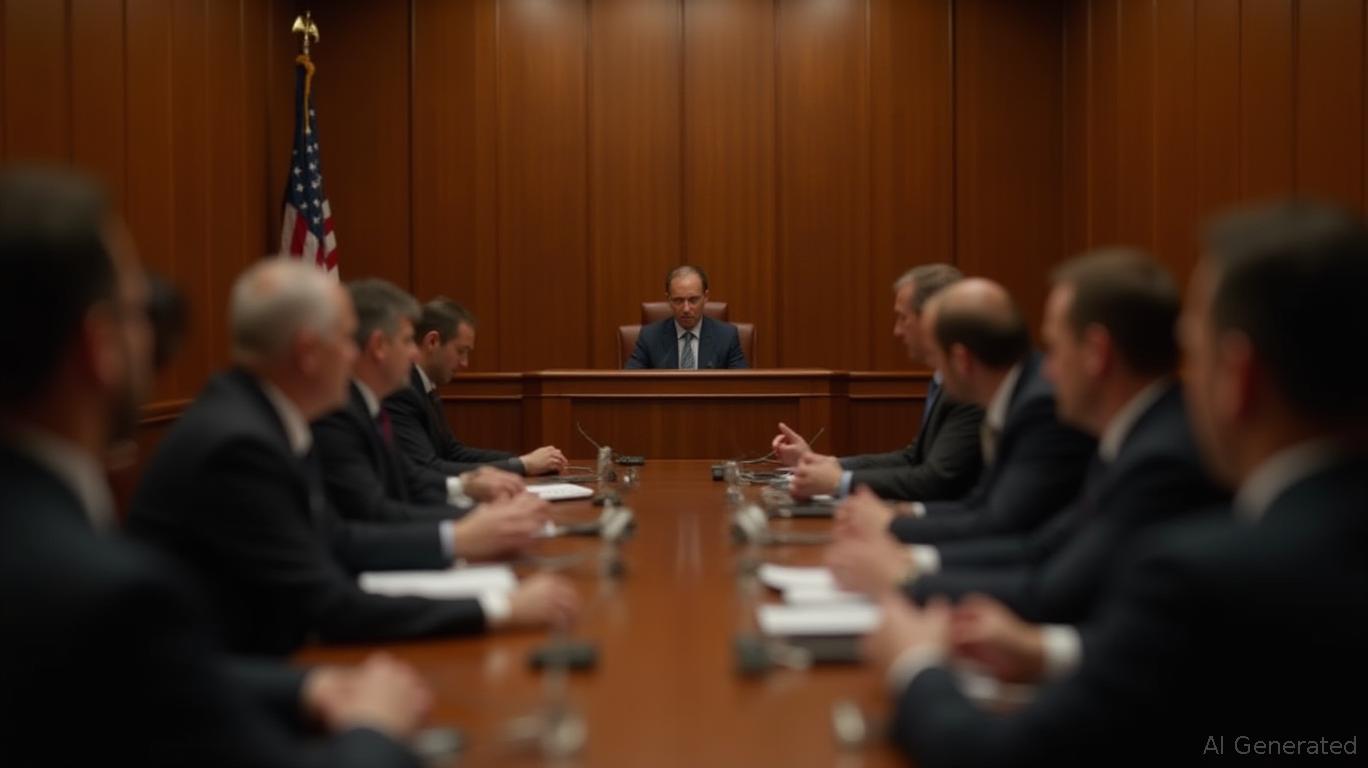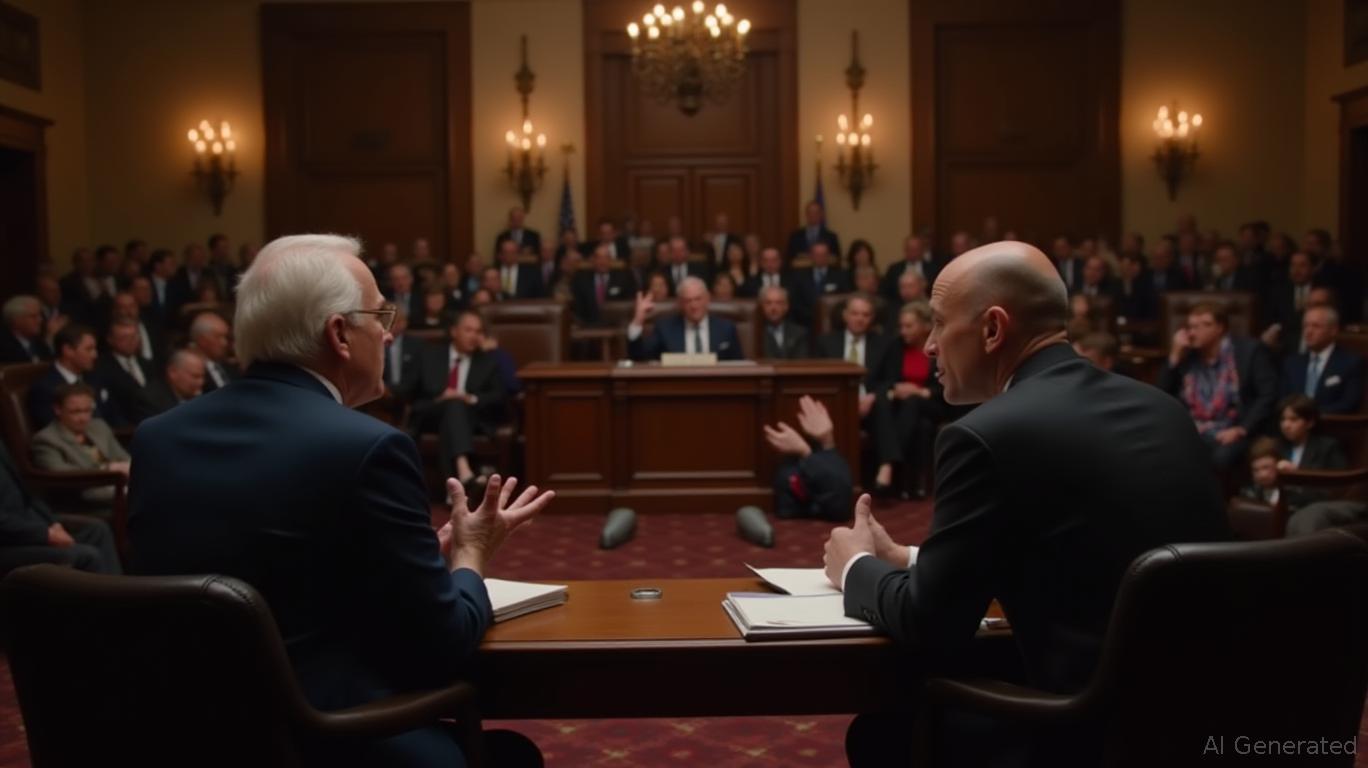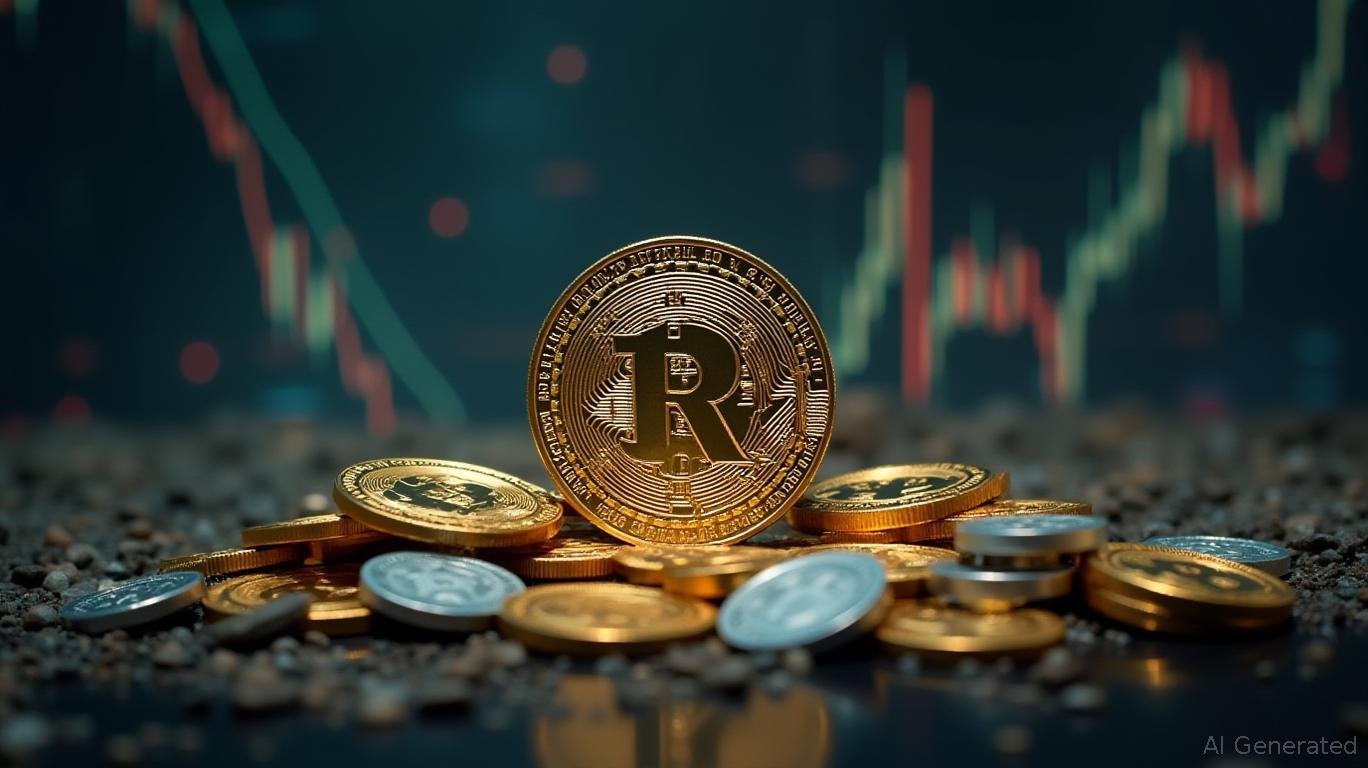Federal Authority Versus State Regulations in Kalshi's Legal Case in New York
- KalshiEX sues New York to block state enforcement of its sports-event contracts, claiming federal commodity futures laws preempt state jurisdiction. - The case follows mixed legal outcomes in Nevada, New Jersey, and Maryland, where courts have both granted and denied preliminary injunctions favoring Kalshi. - Legal experts highlight Kalshi's strategy to frame disputes in federal preemption rather than gambling legality, avoiding state-specific regulatory debates. - A favorable ruling could enable nationw
KalshiEX LLC has intensified its dispute with state authorities by initiating a federal lawsuit in New York, aiming to prevent the state from applying its gambling regulations to the platform’s sports-related prediction contracts. Filed in the U.S. District Court for the Southern District of New York, the suit contends that federal law supersedes state authority over Kalshi’s products, which the company describes as commodity futures contracts regulated at the federal level, according to
The New York State Gaming Commission issued its cease-and-desist letter on October 24, alleging that Kalshi was running an unauthorized sports betting service, according to

Kalshi’s legal tactics have met with varied outcomes. Courts in Nevada and New Jersey granted preliminary injunctions in Kalshi’s favor, finding that CFTC oversight likely overrides state law. However, a Maryland judge recently refused a similar request, stating it was “highly unlikely” that Congress meant to displace state gambling rules, according to
Legal analysts believe Kalshi’s proactive lawsuits are a strategic choice. Daniel Wallach, an attorney specializing in sports betting, explained that most states require prior notification before suing businesses for repeated infractions, which allows Kalshi to present its arguments in federal court first. By centering its case on federal preemption rather than debating whether its products are gambling, Kalshi sidesteps more controversial issues. Nevertheless, states including Arizona, Illinois, and Massachusetts have also issued warnings or filed lawsuits, indicating a broader regulatory pushback, as
The results of these legal battles could reshape how prediction markets are regulated. If Kalshi prevails, it could operate across the country under federal supervision, possibly paving the way for other regulated competitors. If the states win, prediction markets would have to comply with a patchwork of state rules, offering contracts only where sports betting is allowed. The dispute could ultimately be decided by the Supreme Court, as lower courts continue to wrestle with the balance between federal and state control over financial derivatives.
While defending its business model, Kalshi faces practical obstacles. Blocking users in states like New York—where monthly sports betting volume reaches $2.29 billion—could be financially damaging. At the same time, prediction markets are gaining mainstream attention, with New York mayoral candidate Zohran Mamdani referencing Kalshi’s odds during a campaign event. The ongoing case highlights both the increasing prominence of prediction markets and the unresolved questions about their regulatory future.
Disclaimer: The content of this article solely reflects the author's opinion and does not represent the platform in any capacity. This article is not intended to serve as a reference for making investment decisions.
You may also like
OpenAI's Shift to Profit: Will Nonprofit Governance Endure with Microsoft's $135B Investment?
- OpenAI completes for-profit restructuring, granting Microsoft a 27% stake valued at $135B while retaining nonprofit oversight via a $130B equity stake. - Microsoft secures extended IP rights to OpenAI models until 2030 or AGI verification, but loses exclusivity on consumer hardware and cloud infrastructure. - The deal includes $250B in Azure cloud purchases by OpenAI and resolves legal disputes, including Elon Musk's $100B acquisition bid and regulatory objections. - Critics question the nonprofit founda

Blazpay Presale Nears Its End: Investors Hurry to Secure Lower Prices Before Increase
- Blazpay's presale nears completion after raising $843.7K, with 76.1% of 157.3M tokens sold at $0.0075, ahead of a $0.009375 price increase in under a week. - The platform combines multichain trading (50+ blockchains), AI tools, and gamified rewards, attracting 800K+ users and 3M transactions with $200K in distributed rewards. - Tokenomics allocate 34% for public sales, 12% for team/advisory, and 16% for liquidity, with analysts projecting $0.011–$0.017 presale prices and $0.05–$0.09 post-listing. - Quill

Senate Stalemate: GOP Pushes to Resume Government Operations as Democrats Insist on Extending ACA Subsidies
- The U.S. government shutdown entered its 24th day as the Senate rejected a 13th funding bill, closing nonessential agencies and disrupting critical services. - Democrats demand extended ACA subsidies before supporting any bill, while Republicans insist on reopening the government first, deepening partisan gridlock. - Transportation delays and unpaid military salaries highlight growing impacts, with the Pentagon accepting a $130M donation to cover part of defense costs. - SNAP benefits face November freez

XRP News Today: Evernorth’s Approach to Reinvesting XRP Builds $1B Treasury, Enhancing Trust Among Institutions
- Evernorth Holdings, backed by Ripple, surpassed $1B in XRP treasury value, boosting institutional confidence and pushing XRP prices up 4%. - The firm received 530M XRP from Ripple and 50M from CEO Chris Larsen, using DeFi protocols to reinvest gains into further token purchases. - Evernorth plans a Nasdaq listing (XRPN) via SPAC merger, with 95% of its $1B funding target secured and regulatory clarity in the U.S. driving adoption. - Despite SEC delays on XRP ETFs, institutional demand grows as Evernorth'
